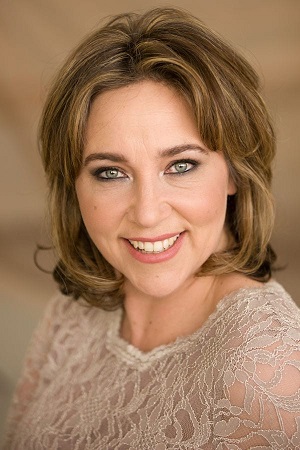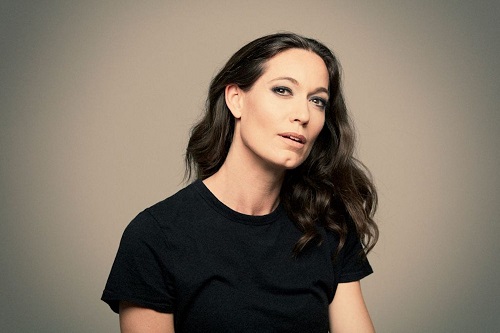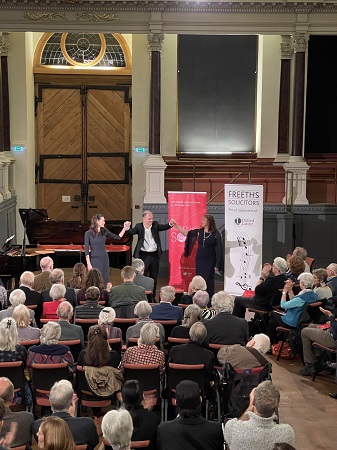Friendship in Song is the theme of the 21st Oxford Lieder Festival, and the Opening Night recital in the Sheldonian Theatre certainly offered an evening of camaraderie and conviviality, as soprano Kate Royal and mezzo-soprano Christine Rice were joined by pianist Julius Drake for a programme of songs and duets which celebrated musical and personal friendships of the past: the close, if complicated, relationship between Johannes Brahms and Robert and Clara Schumann that began in the 1850s, and the intensive, if not intimate, collaborative partnership between Kurt Weill and Bertold Brecht that revolutionised music theatre in the 1920s.
It was Clara Schumman whom we heard first, tenor Magnus Walker and pianist Eunji Han offering five of her songs in the ‘Emerging Artists’ showcase that preceded the main recital. Walker was confident and relaxed in ‘Das Veilchen’ (The violet) and the song had a pleasing flow, the major-minor nuances tellingly placed to bring forth the sadness that arises from the young shepherdess’s callous disregard for the violet – or, surely, lover – that desires to be picked and crushed against her breast. ‘Geheimes Flüstern hier und dort’ (Secret whisperings here and there) had a notable ‘precious’, intimate quality, but it took Walker quite high and the tenor, in his final year of study at the Royal Academy of Music, was a little taut at the top. Han’s voicing was ever clear, though it would have been good to see her not just supporting the melodic line but more actively complementing and engaging with the voice. But, ‘Walzer’ presented an urbane narration and in ‘Beim Abschied’ (On departing) Walker used the refrain to effectively shape the emotional journey of the song. His is an appealing tenor and he has an engaging stage presence. There’s undoubtedly a lot more to come.

The main programme began with Brahms’s Ziguenerlieder Op.103, a set of ‘gypsy songs’ comprising settings of translations of Hungarian folksongs attributed to the Viennese businessman Hugo Conrat. They were originally composed in 1888 for vocal quartet and piano, but Brahms subsequently heeded the advice of his publisher to prepare versions of eight of the eleven songs for solo voice. Royal and Rice were very much tuned into the charm of these songs, which seem to find Brahms in lighter spirits than is customary – the composer himself described the songs as “excessively gay” – the singers’ technical command allowing them to slip easily into the characters that populate the lyrics and create vivid and vitalised realisations.
Rice’s ripe mezzo-soprano perfectly captured the intensity of the opening song’s appeal, ‘He, in ‘Zigeuner, Greife in die Saiten ein!’ (Hey, gypsy, sound your strings!), while ‘Brauner Bursche führt zum Tanze’ (A swarthy lad leads his lovely lass) was fittingly mischievous, a celebration of youthful love, melody and dance which was playfully enhanced by the cheeky swagger of Julius Drake’s accompaniment. Often, though, beneath the gaiety lies a gypsy melancholy, and Rice projected this beautifully in ‘Kommt dir manchmal in den Sinn’ (Do you sometimes recall, my sweetest), her glowing lower register communicating the burning longing of the singer who urges, “Du weißt nicht wie lieb ich dich hab,/ Lieb du mich, wie ich dich” (You do not know how much I love you, Love me as I love you). Drake’s soft final cadence deepened the pathos of the song’s sentiments.
Royal’s interpretations were similarly persuasive and varied. She captured the turbulence of inner feeling expressed through the troubled movement of the waves in ‘Hochgetürmte Rimafluth, wie bist du so trüb’ (Rima, how troubled your towering waters are), the emotional instability stirred further by Drake’s shaping of the bass line’s countermelodies and the tugging rhythms of the piano’s inner voices. ‘Lieber Gott, du weißt, wie oft bereut ich hab’ (Dear God, you know how often I’ve regretted) had a rapturous quality, Royal’s soprano pure but full. The singers came together in coquettish spirits in ‘Wisst ihr, wann mein Kindchen’, as two lovers delight in each other’s loveliness, while the closely song, ‘Rote Abendwolken ziehn’ (Red evening clouds drift) found the duo balancing wistfulness and hope. These were assured interpretations, carefree joy enlivened with a dash of gypsy fire. The singers’ obviously pleasure seemed to confirm the enjoyment that Brahms himself found in composing these songs.

Four more Brahms duets followed. The harmonious thirds and sixths of ‘Die Schwestern’ (The Sisters) proved disingenuous when the siblings’ concordant looks and sentiments were shattered by the bitter discovery that they both loved the same man, though calm was restored in ‘Die Meere’ (The seas) which flowed with a consoling lilt and vocal sumptuousness. ‘Phänomen’ (Phenomenon), with its rich textures and rhythmic complexity, was perhaps the most obviously ‘Brahmsian’ song, and the trio powerfully conveyed the elevated beauty of the composer’s response to Goethe’s text. By contrast, ‘Walpurgisnacht’ was a jittery and restless dialogue between a mother and her daughter, as the latter discovers, with increasing dread, her mother’s nocturnal witchings. As always, Drake’s contribution to the masterful drama of the song was both unobtrusive and telling, underscoring the daughter’s anxiety in repetitions of her ever more fraught address, “Lieb Mutter … Ach Mutter”.
If the Gothic terror of Walpurgis Night was a long way from the folky mischief of the sisters’ squabbling, then there was perhaps less extreme variety in the four duets by Robert Schumann that followed, which shared a gentle introspective ambience. These are beautiful duets though, and they were sung with sensitive musicality and care. ‘Herbstlied’ was a lovely reflection on autumnal change and departures, the singers sustaining their vocal presence in the most calm pianissimos and brightening at the close to welcome the arrival of winter, its raiment “pure and new”. ‘Sommeruh’ (Summer peace) was similarly delicate, though possessed a quiet rapture. Two settings of Emanuel Geibel from Schumann’s Op.74 collection, Spanisches Liederspiel, turned to matters of the heart, ‘Erste Begegnung’ (First encounter) offering a young girl’s excited, fidgety account to her mother of her first sensual experience, in which the asymmetry of the interplay between the voice and piano enhanced the sense of her naïve delight in her new awakening. The long-breathed phrases of ‘In der Nacht’ turned to love’s sorrows, and here Drake’s subtle, at times fragile, falling teardrops brought to mind the poetry of Dichterliebe’s piano discourse.

Opening the final sequence of songs, Kurt Weill’s ‘Berlin im Licht’ took us from the music of the heart to the sound of the street – and confirmed that Weill’s affinity with the popular style was as innate as Brahms’s feeling for the folk idiom. The song was written for an eponymous four-day festival held in the German city in October 1928, celebrating the gleaming shop-window lights and neon advertisements, and the city’s illuminated monuments and commercial buildings, and Christine Rice relished the ‘glamour’ of the 1920s cabaret idiom. ‘Nannas Lied’ was a more poignant reflection on city life, the streetworker’s memories full of bittersweet intensity: “Gottseidank, geht alles schnell vorüber/ Auch die Liebe und der Kummar sogar.” (Thank God it all goes by quickly, both the love and the sorrow.) There was both vulnerability and anger in Rice’s slow, closing questions – “Wo sind die Tränen von gestern abend?/ Wo ist der Schnee vom verhe drama for the cgangenen Jahr?” (Where are the tears of last night? Where are the snows of yesteryear?) – and she also introduced an occasional steeliness into her mezzo to convey the regret that infuses the imagery of ‘Es regnet’ (It’s raining), Drake’s languid, slightly hesitant habanera rhythm enhancing the pity.
Royal’s silky tone imbued the nostalgic listlessness of the well-known ‘Youkali’ with character and feeling; her legato was consoling even as the sentiments offered little hope. She didn’t overdo the emotionalism of the song, saving brief theatricality for the closing glimpse of “the land of our desires … Happiness and pleasure”, before retreating into quiet resignation. ‘Buddy on the night shift’, one of two propaganda songs that Weill composed for the ‘Lunch Hours Follies’ performed for the workers of a shipbuilding workshop in New York, and for which Oscar Hammerstein II wrote the lyrics, had a slinky flow, and Drake’s accompaniment was subtle and insouciant. But, the upbeat charm couldn’t erase the reality expressed in the closing, blunt question: “how can we go wrong?” Royal controlled the emotional temperature of ‘Je ne t’aime pas’ superbly, building to a final quasi-spoken denial that confirmed its own self-deceptiveness. The duo closed their programme with an extrovert, but not hyperbolic, rendition of ‘Alabama Song’ from Mahoganny.
All three musicians demonstrated superb versatility throughout the evening; the technical control was secure as a rock in every song and duet; the expression flexible and utterly engaging. Judging from the smiles all round, the programme probably took them, and the audience, on a welcome journey through some unfamiliar musical territory. It certainly made for an upbeat, charming Opening Night at Oxford Lieder.
The 21st Oxford Lieder Festival continues until 29th October.
Claire Seymour
Magnus Walker (tenor), Eunji Han (piano)
Clara Schumann – ‘Das Veilchen’, ‘Geheimes Flüstern hier und dort’, ‘Walzer’, ‘Die gute Nacht, die ich dir sage’, ‘Beim Abschied’
Kate Royal (soprano), Christine Rice (mezzo-soprano), Julius Drake (piano)
Brahms – Zigeunerlieder Op.103, ‘Die Schwestern’, ‘Die Meere’, ‘Phänomen’, ‘Walpurichsnacht’; Schumann – ‘Herbstlied’, ‘Erste Begegnung’, ‘Sommeruh’, ‘In der Nacht’; Weill – ‘Berlin im Licht’, ‘Youkali’, ‘Nannas Lied’, ‘Buddy on the Night Shift’, ‘Es regnet’, ‘Je ne t’aime pas’, ‘Alabama Song’.
Sheldonian Theatre, Oxford; Friday 14th October 2022.